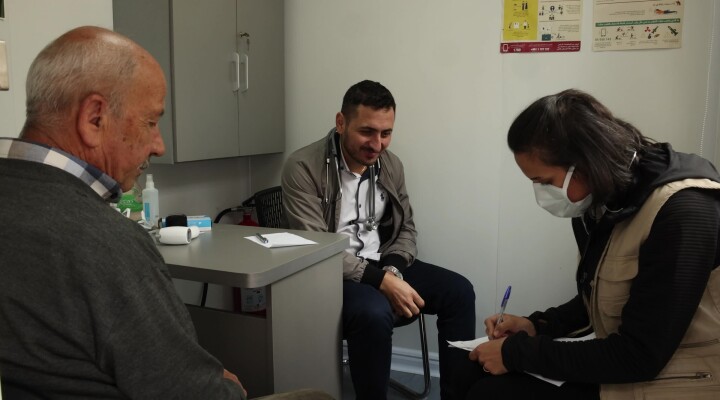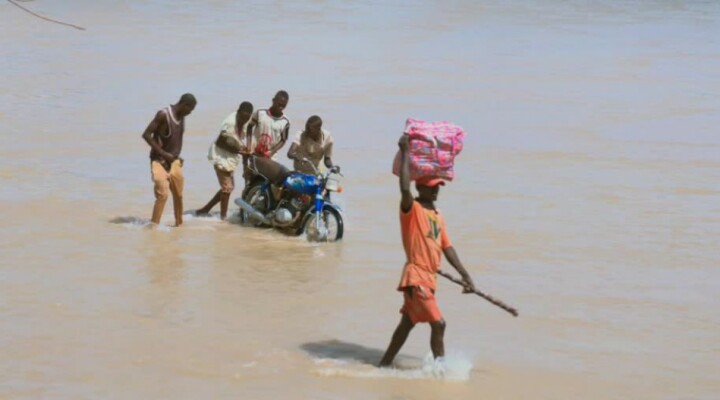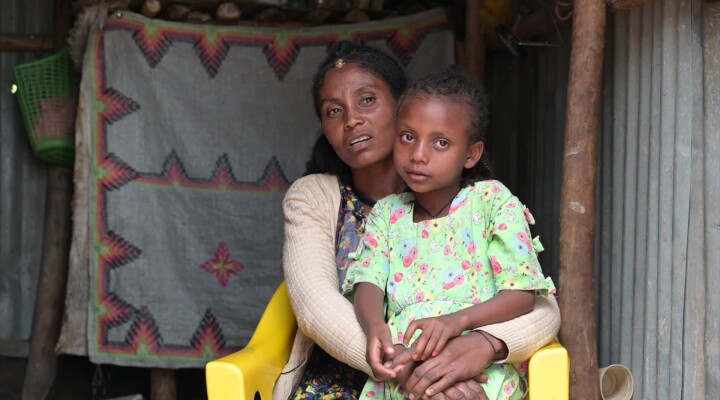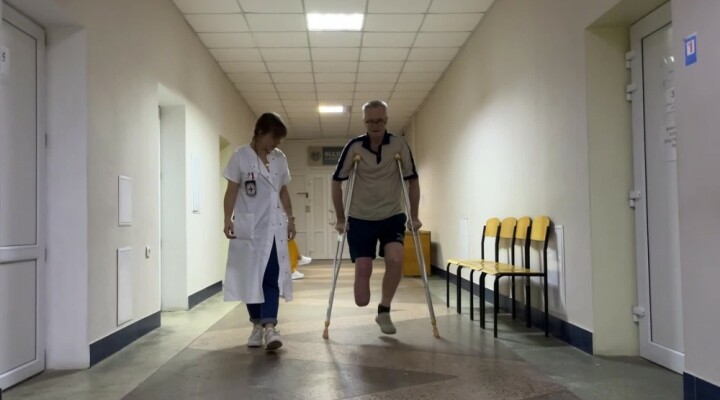Rural Colombia: to flee violence or stay home
At over 3.5 million people, Colombia has one of the biggest displaced populations in the world. In a 'forgotten conflict' that has rumbled on for 5 decades, civilians often get caught up in the crossfire.
Beyond battles between the government and leftist guerrillas, there is a new dimension to the conflict. Armed groups, fuelled by the drug trade, are emerging and often forcibly recruiting civilians in rural areas.
Pedro's Story - Forcibly Recruited
25 year old Pedro Sanchez* (false name) used to live in a rural area and made a good living breeding cattle. He owned horses and had bought a small shop for his wife to work in. But he lost it all the day an armed group seized him. They were looking for his brother.
Pedro gave this interview to the ICRC asking for his face to be hidden and his name changed. He explains: "They brought me to the camp where the commander was based. He said to me: 'Where's your brother? You have to know.' I told him I didn't." The commander gave Pedro a shovel and told him to start digging - he was digging his own grave unless he told them where his brother was. Pedro was terrified: "What was I going to do? I thought they were going to kill me."
Then, they said Pedro could work for them instead of dying. After a week, Pedro realised he was being forcibly recruited into an armed group. When he saw a chance to escape, he took it and ran. He left everything behind - his horses and shop.
Pedro is now hiding in a city in south west Colombia with his wife, Margarita*. Through a family contact, he found a room to stay in. It is free for the first15 days but then he must pay rent. Pedro needs to start earning money urgently but he's scared he won't find work. His farming skills are little use in a big city.
Margarita's worried: "Our situation is very difficult. He doesn't have any work and neither do I. We don't have anything. We have to sleep on the floor and it is very hard. I'm pregnant and my back hurts a lot. The baby is small because I haven't been eating well."
The ICRC has arranged for a check up for Margarita. She is relieved to hear the baby is fine. Her back pain is because of a urinary infection which can be treated simply with antibiotics.
Maria Puy Serra, an ICRC Delegate says: "This couple's situation is sadly a very usual one in the area. One of the most important things for displaced people to know is what their rights are. So what we do is give them the information of the assistance that they can get from the state. Afterwards, whether they want to declare their status as displaced or not, it's their decision."
People fleeing conflicts usually want to disappear into the crowd and remain anonymous. However, if they do officially declare themselves to the government as displaced, they are entitled to state assistance and financial compensation. It's a right many Colombians are unaware of. In 2010, the ICRC assisted 53,000 people to access state services.
Every day, 30 to 40 people come to this State Emergency Assistance Office in south west Colombia. However, 60 to 70% of claims are rejected.
While Pedro's case is being decided, the ICRC is providing basic household items and, for the next 3 months, supermarket vouchers. In 2010, the ICRC provided 38,000 displaced people with counselling and this type of emergency humanitarian aid.
Pedro and Margarita are trying to be optimistic about their future. Margarita says: "With God's will, we will find work here and make our lives here."
Nelsy's Story - Blocked Livelihood
Nearly 10% of the Colombian population is displaced. Roughly half of these families owned or occupied land before their displacement. But when people uproot themselves, they leave that all behind.
Beyond the financial loss, there is an emotional toll when people abandon their home and leave their friends and families behind. One of the ICRC's priorities is helping victims of the conflict stay in their homes and avoid becoming displaced - such as Nelsy Cuaces.
"Over there, where the clouds are, that's the farm, "says Nelsy. "It's overgrown with forest. We can't work the land because of the landmines."
Behind getting literally caught up in the fighting, many Colombians face a deadly risk long after the last shot is fired. In the last decade, the Colombian government estimates over 8,300 people were injured or died from abandoned weapons of war such as landmines and unexploded ordinance.
"You feel locked up because you can't go out freely," says Nelsy. "You don't know where the mines are. You could lose your arms, legs, or even die." Nelsy's husband has already left to find work elsewhere. She is struggling to get by with her 4 children.
To avoid people working on weapon contaminated land, the ICRC is helping Nelsy and others with animals, fodder and construction materials. Through such livelihood projects, the ICRC helped over 9000 Colombians last year.
Nelsy says: "This is a big help. This will cover some of our needs, not all of them, but the most urgent, at least."
For Nelsy, her biggest hope is that her children's future will be brighter than their reality now.
For more information in English on icrc.org
http://www.icrc.org/eng/resources/documents/update/2011/colombia-update-2011-04-14.htm
For more information in Spanish on icrc.org
http://www.icrc.org/web/spa/sitespa0.nsf/html/colombia-intro-reporte-2011-04-14
For more information in French on icrc.org
http://www.icrc.org/web/fre/sitefre0.nsf/htmlall/colombia-update-2011-04-14



